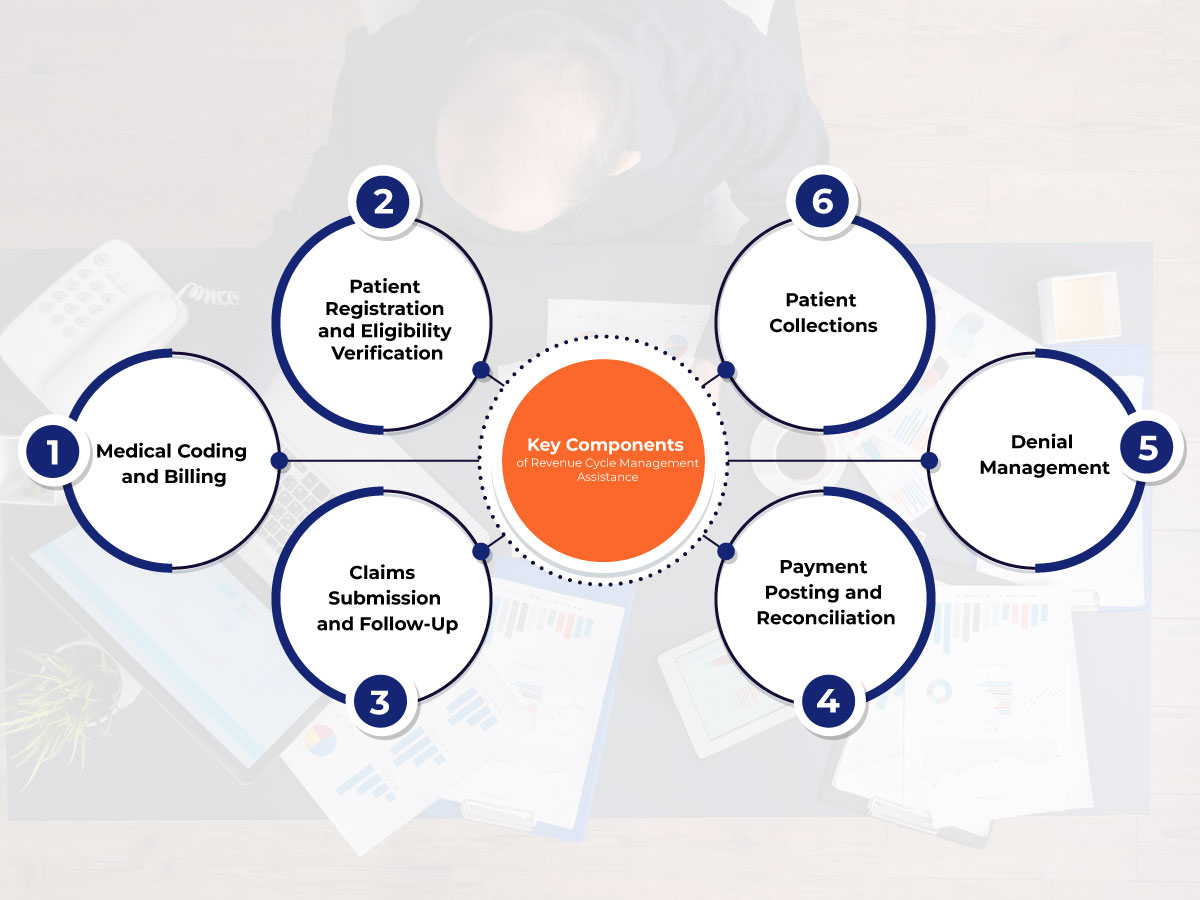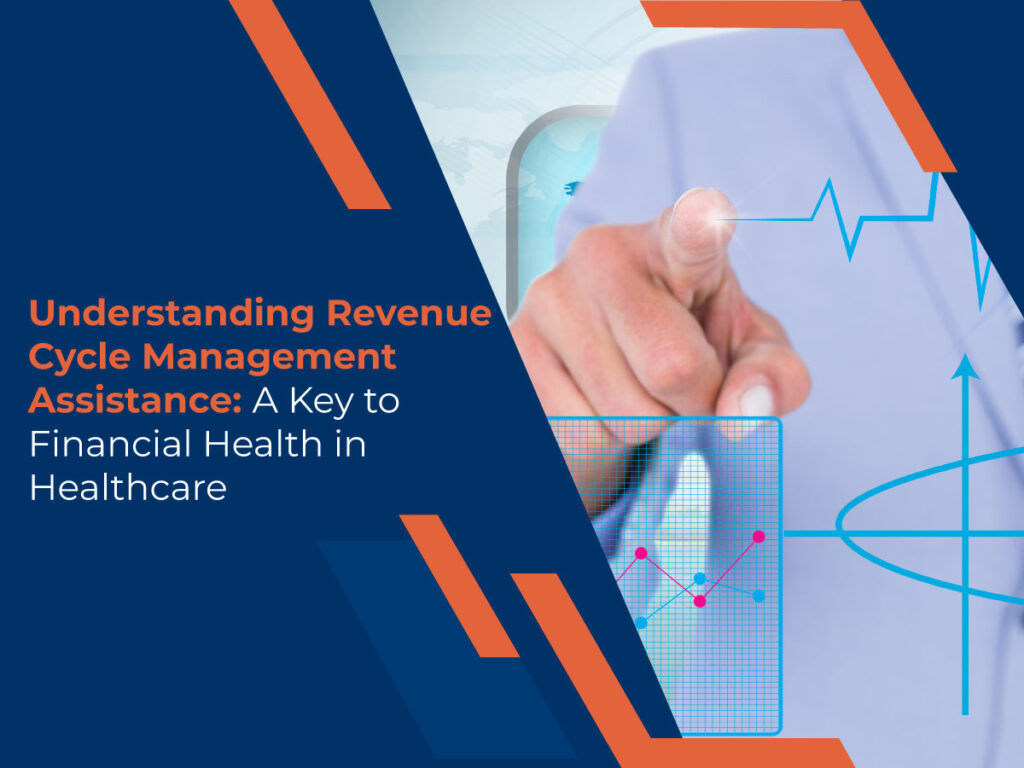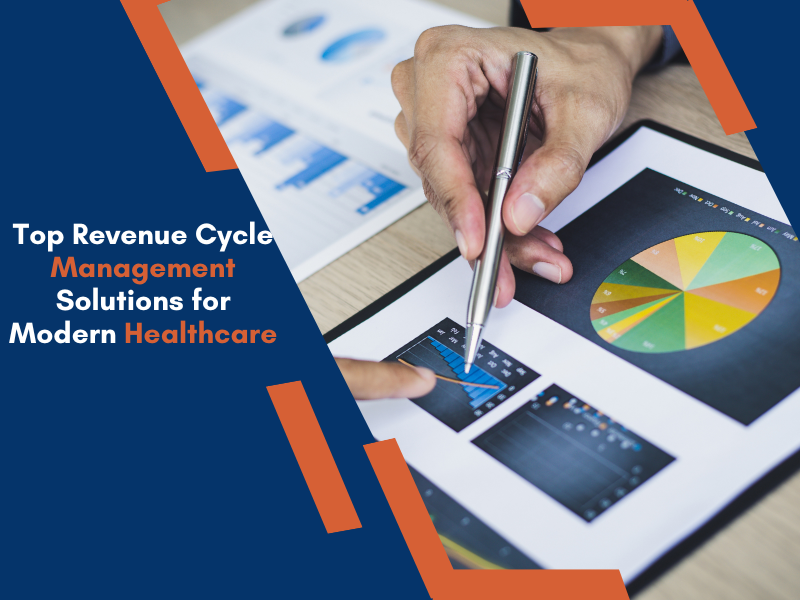Effective revenue cycle management (RCM) is critical to the financial success of healthcare organizations. With the increasing complexity of billing systems, insurance claims, and patient payments, managing the revenue cycle efficiently has become more challenging than ever. This is where Revenue Cycle Management Assistance comes into play, helping healthcare providers streamline their financial operations and ensure a steady flow of income.
In this blog, we’ll explore the importance of RCM assistance, the key components of revenue cycle management, and how professional assistance can optimize your healthcare facility’s financial health.
What Is Revenue Cycle Management (RCM)?
Revenue cycle management refers to the process of tracking patient care episodes from registration and appointment scheduling to the final payment of a balance. It involves several key stages, including:
- Patient scheduling and registration
- Insurance eligibility verification
- Coding and billing of claims
- Claims submission and management
- Payment posting
- Denial management and appeals
- Patient collections
Each step in the RCM process requires attention to detail and precision. Mismanagement at any point can lead to delays in payments, claim denials, or even significant revenue losses.

Why Revenue Cycle Management Assistance is Crucial
With so many moving parts in the revenue cycle, healthcare providers often struggle to maintain a healthy cash flow. Common challenges such as incorrect coding, delayed payments, or denied claims can disrupt the financial stability of healthcare institutions. Here’s where Revenue Cycle Management Assistance comes in.
Partnering with an RCM assistance provider can offer the following benefits:
- Improved Efficiency and Accuracy
Healthcare organizations often face issues like incorrect coding or incomplete documentation, which can lead to claim denials and delayed payments. Revenue cycle management assistance providers are experts in medical coding, billing practices, and claim submission protocols. They ensure that claims are correctly submitted the first time, reducing the chance of denials and speeding up the reimbursement process.
- Reduction in Claim Denials
Denials from insurance companies can be a significant revenue loss for healthcare providers. A strong RCM system ensures that denials are handled swiftly and effectively. RCM assistance helps identify the root cause of denials, whether it’s an eligibility issue, incorrect coding, or missing documentation, and resolves these issues quickly, improving the approval rate of claims.
- Faster Cash Flow
One of the main goals of effective RCM is to reduce the time between patient services and payment receipt. Revenue cycle management assistance ensures that all steps in the billing process are followed promptly and accurately. By streamlining processes such as eligibility verification and payment posting, healthcare providers can enjoy a steady, predictable cash flow.
- Compliance with Regulations
Healthcare is one of the most highly regulated industries, with ever-changing rules and regulations governing insurance claims, billing, and patient data security. An RCM assistance provider ensures that your organization stays compliant with current regulations, avoiding costly penalties or audits. They also stay up-to-date on industry changes, ensuring your revenue cycle processes remain optimized for success.
- Focus on Patient Care
Managing a healthcare facility’s finances can be time-consuming and take focus away from patient care. By outsourcing revenue cycle management, healthcare providers can devote more time and resources to what they do best—delivering quality patient care. The assistance ensures that financial operations are running smoothly, without requiring constant attention from healthcare administrators.
- Access to Advanced Technology
RCM assistance providers often utilize the latest technology and software to enhance the efficiency of the revenue cycle. Automated systems can help streamline tasks such as patient registration, eligibility verification, claims processing, and payment tracking. This technology reduces manual errors, speeds up processes, and improves the overall financial health of the organization.
Key Components of Revenue Cycle Management Assistance

When you partner with an RCM assistance provider, several key components will be addressed to ensure optimal performance and revenue flow. These include:
- Patient Registration and Eligibility Verification: Verifying a patient’s insurance coverage and benefits before service delivery can prevent denied claims and payment delays later.
- Medical Coding and Billing: Accurate medical coding and billing are essential to successful claim submission. RCM assistance ensures that your facility adheres to the latest coding standards, reducing errors.
- Claims Submission and Follow-Up: Submitting claims on time and following up on any unpaid or denied claims are crucial for maintaining cash flow. An RCM partner will handle the entire claims process from start to finish.
- Payment Posting and Reconciliation: Accurately posting payments and reconciling accounts are essential for ensuring that all services are paid for and no payments are missed.
- Denial Management: If a claim is denied, the RCM assistance provider will analyze the cause of the denial, address the issue, and resubmit the claim to ensure payment is received.
- Patient Collections: Ensuring patients pay their share of the medical costs can be difficult, but RCM assistance can offer strategies for efficient patient payment collection, ensuring revenue is maximized.
How Revenue Cycle Management Assistance Optimizes Financial Health
Revenue cycle management assistance is about more than just handling billing and claims. It’s a comprehensive service designed to improve the financial health of your healthcare facility. Here’s how it can help:
- Increased Revenue: With fewer claim denials, faster payment processing, and effective patient collections, your organization will see an increase in revenue.
- Cost Savings: RCM assistance providers can help identify inefficiencies in your current process and suggest ways to streamline operations, reducing operational costs.
- Scalability: As your organization grows, your RCM needs will become more complex. An RCM assistance provider can scale their services to meet your growing needs without compromising efficiency.
Conclusion
Efficient revenue cycle management is vital to the financial success of any healthcare organization. Revenue Cycle Management Assistance can be the key to improving your facility’s revenue flow, ensuring compliance, reducing claim denials, and freeing up your staff to focus on providing high-quality patient care. By partnering with an experienced RCM provider, you can take control of your financial health and ensure long-term stability.





